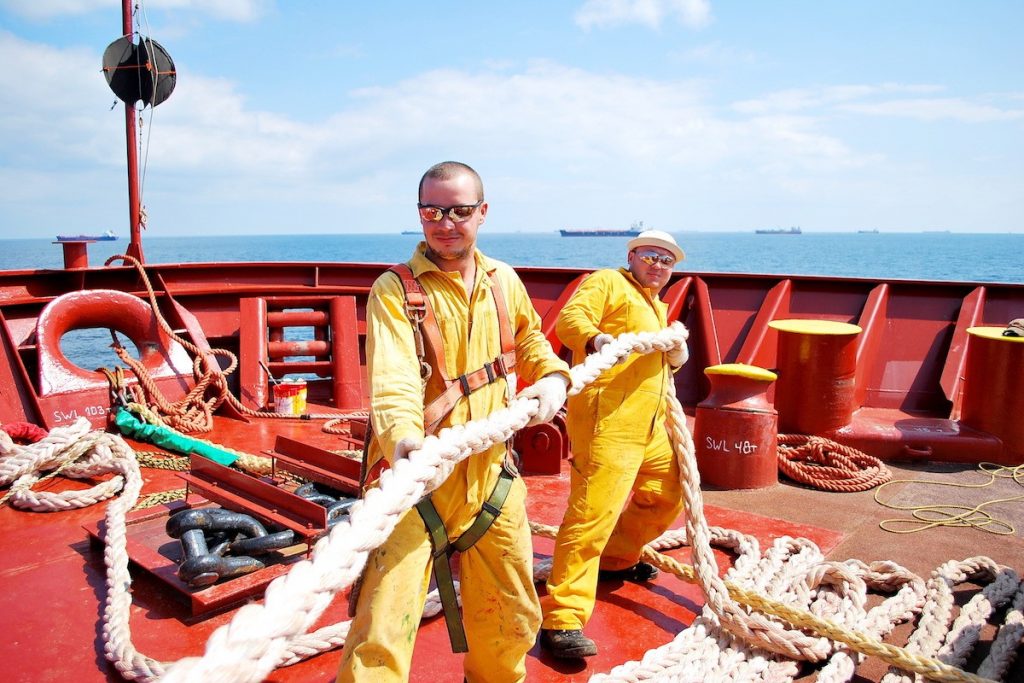
Licensed recruitment agencies are liable for damages due to unauthorized substitution of government-approved employment contracts.
The Philippine Supreme Court stressed this principle in the case of Marcelo M. Corpuz vs. Gerwil Crewing Philippines, Inc. (G.R. No. 205725 January 18, 2021) in awarding damages due to the agency’s carelessness and wanton disregard of its continuing liability to ensure the welfare of Filipino workers they deployed abroad.
Corpuz was hired and deployed as an Able Seaman by Gerwil Crewing Philippines to work for vessel MT Azarakhsh of Echo Cargo & Shipping LLC. for a 12-month contract as approved by the Philippine Overseas Employment Administration (POEA).
Unfortunately, he was repatriated due to severe headache and vomiting after he allegedly sustained a fall while lifting heavy motor parts.
The seafarer’s request for medical assistance was denied on the ground that the illness was not work-related. He then consulted a private doctor who issued a certification that he was suffering from “Severe Complex Cerebral Function Disturbance or Post Traumatic Psychoneurosis.” He later filed a case for disability benefits.
The Labor Arbiter ruled in favor of the seafarer that his injury was related to his exposure to toxic and hazardous materials.
The National Labor Relations Commission (NLRC), however, reversed the decision due to Corpuz’s failure to comply with the mandatory three-day reporting requirement. This was affirmed both by the Court of Appeals and the Supreme Court.
While the seafarer may have forfeited his right to claim disability benefits, the Supreme Court found it proper to award him with moral damages (Pph100,000), exemplary damages (Php100,000), due to the agency’s wanton behavior and by way of example for the public good; and attorney’s fees equal to ten percent (10%) of the total monetary award.
The award for damages was based on the Court’s observation that the salient terms of the employment contract were altered or changed without the approval of the Department of Labor and Employment (DOLE) through the POEA.
The Sea Service Certificate indicated that the seafarer worked with Al Mansoori Production Services Co. (LLC) as an Oiler on board M V Alshaheen MPS (DPS2), a production well testing and supply vessel, from August 6, 2008, to August 10, 2009.
But the entries in the certificate were completely different from those in the POEA-approved employment contract executed on May 28, 2008.
The agency’s omission resulted in the change of the seafarer’s foreign employer on board a different vessel, and service in a totally different capacity which working conditions may have led to his medical repatriation.
The Court stressed that the substitution or alteration of the POEA-approved contract had relegated the seafarer to the unfavorable situation which R.A. No. 8042, or the “Migrant Workers and Overseas Filipinos Act of 1995” as amended, specifically seeks to avoid.
The agency entered into a covenant with the State to promote the safety and welfare of Filipino workers. They have undertaken to ensure that the “contracts of employment are in accordance with the standard employment contract and other applicable laws, regulations and collective bargaining agreements.”
The agency’s inaction or omission was against existing law and public policy as it perpetrated the illegal and pernicious practice of substituting the POEA-approved contract to the detriment of the Filipino worker.
The agency had been complacent with the fact that it was able to deploy the seafarer abroad without ensuring his status and his whereabouts despite the non-accreditation of the foreign principal Echo Cargo.
The law did not limit the responsibility of agencies to the recruitment and deployment of Filipino workers to foreign countries. They are obliged to extend assistance to migrant workers, especially those who are in distress, a responsibility that exists during the lifetime of the employment contract and shall continue despite substitution, amendment or modification of the agreement.
The law also provides for the solidary and continuing liability of recruitment agencies against monetary claims of migrant workers.
The Supreme Court ruled in the earlier case of Chavez v. Bonto-Perez (312 Phil. 88) that a subsequently executed side agreement which reduced one’s salary below the amount approved by the POEA is void because it is against existing laws, morals and public policy.
The side agreement cannot supersede the POEA-approved standard employment contract, the Court said adding that is a scheme all too frequently resorted to by unscrupulous employers against helpless OFWs who are compelled to agree to satisfy their basic economic needs.
Atty. Dennis Gorecho heads the seafarers’ division of the Sapalo Velez Bundang Bulilan law offices. The views and opinions expressed in this article are those of the author and do not necessarily reflect the official editorial position of LiCAS.news. For comments, email info@sapalovelez.com, or call 09175025808 or 09088665786
Source: Licas Philippines
0 Comments